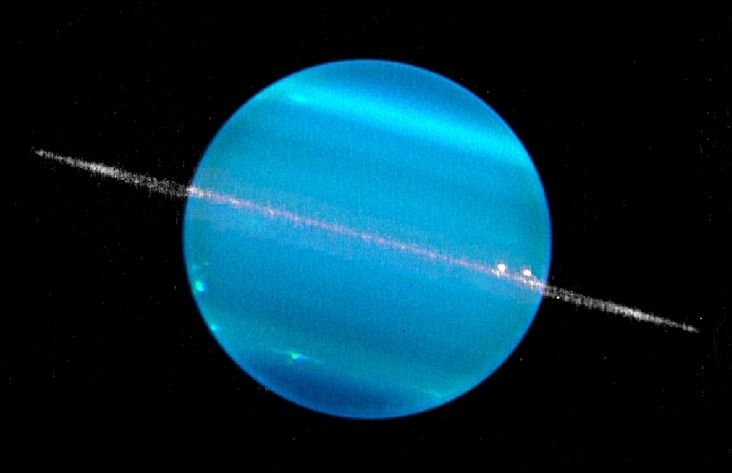Two of Uranus' tiny moons are on a collision course with each other
The gravitational pull from one moon is likely to trigger a collision with another.

Researchers have predicted that two of Uranus' moons are on the path of a major astronomical collision.
Apart from raining down million-carat diamonds and rotating on its side (with a spin axis of 98 degrees), the mysterious planet of our solar system, Uranus, has got another astronomical event lined up — the collision of its tiny moons.
No, not in the coming years! But, a team of researchers, led by Robert Chancia of the University of Idaho, posits the catastrophe will take place in around a million years when Uranus' moon Cressida will crash directly into its neighbour Desdemona. The reason for this collision is thought to be the exaggerated gravitational pull from Cressida on the rings of the planet.
The team predicted the doomed future of the two moons by studying its mass — about 1/300,000 the mass of our Moon — and orbit. Uranus' moons are tightly packed (within just 11,184 miles of each other) and the current course of Cressida is likely to trigger a deadly encounter with Desdemona, which is moving in an orbit just 900km from its own.
Cressida measures 82km across, while Desdemona is even smaller. The two moons were discovered in 1986 when Voyager 2 arrived at Uranus and found 10 moons orbiting the planet. Today, the number has gone up to 27 moons, most of which are thought to be partially composed of ice and water.
It is also worth noting that Cressida and Desdemona are not the only moons that will collide. Previous research has suggested that two other Uranus moons, Cupid and Belinda, will also follow suit by crashing sometime between 1,000 to 10 million years from now.
Uranus' moons are extremely dense and the increase in their density increases the chances of a collision. Scientists believe moon crashes have happened before and the debris orbiting the planet in a faint ring is the byproduct of those crashes.
Nasa is considering a plan to send a probe to explore Uranus' atmosphere, but there is no confirmed timeline for the mission yet.
© Copyright IBTimes 2025. All rights reserved.





















